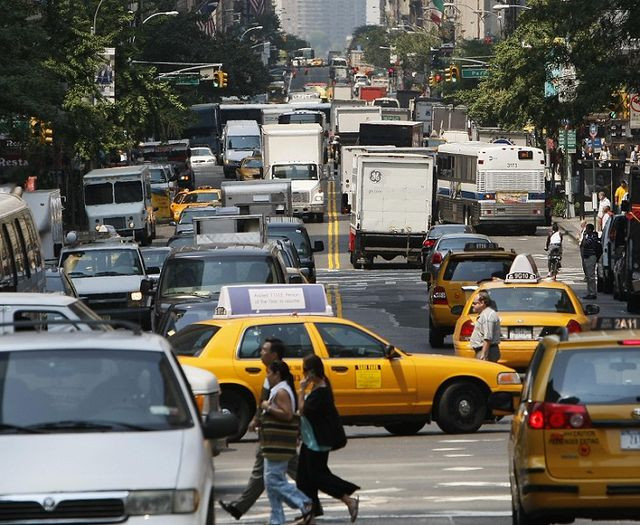New York City is poised to implement the nation's first congestion toll, set to begin on January 5, following a federal judge's ruling that largely sided with the Metropolitan Transportation Authority (MTA) and New York Governor Kathy Hochul. The controversial $9 toll to enter Manhattan south of 60th Street has ignited fierce opposition from New Jersey officials, who argue it will harm their communities by diverting traffic and increasing pollution.
Judge Leo Gordon, ruling in Newark, declined to issue an injunction to delay the toll's implementation but remanded the matter to the Federal Highway Administration (FHWA) to address environmental mitigation concerns by January 17. While New York officials, including MTA Chair Janno Lieber, claim the ruling clears the way for the toll to proceed, New Jersey representatives insist the decision requires further review, effectively stalling the project.
"Despite the best efforts of the State of New Jersey trying to thwart New York's ability to reduce congestion on our streets while making long-overdue investments in public transit, our position has prevailed in court on nearly every issue," said Governor Hochul, celebrating the ruling as a "massive win for commuters."
Under the congestion pricing plan, drivers will face a $9 fee during peak hours, with discounted rates for off-peak times. The initiative aims to cut vehicle traffic by 10% and raise billions to modernize the region's aging transit system. The MTA asserts that the toll will enhance public transit, reduce emissions, and alleviate Manhattan's notorious congestion.
However, New Jersey Governor Phil Murphy countered that the ruling supports the Garden State's stance. "Because of New Jersey's litigation, the judge has ordered a remand, and the MTA therefore cannot proceed with implementing the current congestion pricing proposal on January 5, 2025," Murphy stated.
Judge Gordon's 72-page decision underscored the disparities in mitigation measures. While the plan includes specific allocations for affected New York neighborhoods, such as $15 million to replace diesel-powered refrigeration units at the Bronx's Hunts Point Market, no equivalent funds are designated for New Jersey communities. The court found this omission "arbitrary and capricious" and instructed the FHWA to address the issue.
Beyond environmental concerns, opposition to the toll includes lawsuits from organizations like the United Federation of Teachers and the Trucking Association of New York. A separate federal judge dismissed a Manhattan-based case last week, rejecting claims that the toll would disproportionately harm certain constituencies.
Critics have also labeled the toll a cash grab by the MTA. New Jersey attorney Randy Mastro described the toll as unfair and premature, vowing to continue the legal fight. Meanwhile, Hochul maintained her administration's openness to a settlement, though prior offers have failed to satisfy New Jersey officials.






